WHAT'S MOST NUTRIENT DENSE? PLANTS OR LIVER???
If you like the work Vegan Linked is doing and want to help us keep the cameras rolling considering contributing here: https://veganlinked.com/fundme/
All the nutrients you need originate from plants without the stuff you don't need that the animal's DNA created for that animal. Name ONE nutrient we need from animals that animals make that we can't get from plants.
I will be adding more resource links over time here:
Diabetes: https://youtu.be/BqcvtBjfxOA
Heart Disease:https://youtu.be/O0m-6YQ8cIg
Excess protein is a problem, learn more here: https://youtu.be/05pe-dzwvNg
Fatty Acids: https://youtu.be/NI7_QekdVoI
I have noticed whenever Dr. Michael Greger or Nutrition Facts posts something, like on Twitter, about nutrient density people go bonkers with assumptions and a misunderstanding of what nutrient density is. Lately I’ve been hearing people say the same thing or hint around to it on my channel and social media. So, maybe this will shed some light on things.
Reductionism is a way of looking at single nutrients. This is a very scientific approach, if you’re a scientist you want to focus on a specific nutrient and hone in on mechanisms of action. But, as a lay person, like me, it’s better to focus on whole foods, holism. Really, doctors should too because they aren’t “scientist”. And they would encourage their patients not to supplement with pills but instead "let food by thy medicine".
Unfortunately, people think protein is the most important nutrient. It’s as if they think it’s the only nutrient. The question isn’t “where do I get my protein?” it should be “where do I get my fiber?”
All nutrients are important in their own right. And there’s still so much that we don’t know, even the people who know the most. And studies are done on the general population, which may not necessarily apply to someone on restricted diets. So, even RDA’s may not be accurate. Esp. since activity level, environmental factors, genetics, and lifestyle of course play a part.
So, I don’t supplement (except B12 which comes from bacteria, not animals or plants). And I don’t count calories. And I don’t worry about protein. I just eat when I’m hungry and try to keep it as healthy, diverse, balanced and whole food as possible. And, all in all, I don’t want to be neurotic about it, so I may not be all the perfect. But it’s easy when I immerse myself in whole foods by only having those around. And understanding the health benefits is extremely inspiring to take the time and at least cut up a head of romaine and throw a can of chickpeas, or peas, or kidney beans, or black beans, etc… on it, along with various seeds, artichoke, olives, a little nooch, herbs, raisins, vinegar, etc… whatever. Easy, I can do this before someone has a grill hot and ready.
There’s some other topics I need to tackle but for now I need to get back to work! Hope this isn’t vegan cheesy and makes sense lol
Ideally we would all have been vegan from conception. More people are raising their children vegan. We can choose to adapt to plants exclusively and not depend on being violent toward animals. But since most of us aren't raised eating plants exclusively some may have some challenges working toward this new way of eating and living. If that is you, consider consulting with a nutritionist, dietician, or physician ideally practicing lifestyle medicine for help with transitioning into eating the healthiest diet on the planet, whole plant foods. Check out Plant Based Telehealth or the American College of Lifestyle Medicine for recommendations.
"The takeaway: The pros and cons of anti-nutrients on long-term human health is an area of active research. Though certain foods may contain residual amounts of anti-nutrients after processing and cooking, the health benefits of eating these foods outweigh any potential negative nutritional effects. Eating a variety of nutritious foods daily and avoiding eating large amounts of a single food at one meal can help to offset minor losses in nutrient absorption caused by anti-nutrients." https://www.hsph.harvard.edu/nutritionsource/anti-nutrients/
It's also worth mentioning that when you eat an animal it's as if you're eating something so similar to you that it makes sense some nutrients like heme iron are going to be more readily absorbed, just like if you ate a human. More easily absorbed isn't always a good thing when you still have to deal with oxidation of that excess iron "a damage‐associated molecular pattern" and to make matters worse animals have on average 64 times less anti-oxidants than plants. And of course the transfat, arachidonic acid, TMAO, endotoxins, advanced glycation end products, and everything else I mentioned in this video. When I learned about the sialic acids unique to nonhuman animals becoming a part of the human's cells it became clear how much you literally become the animal you are eating. Your body does not want this, hence the reason for inflammation and chronic disease progression.
People get comfortable smoking and we did it for thousands of years but that doesn't mean it's healthy. Furthermore, we've been very violent throughout history, this doesn't mean we should keep being violent. Sometimes smokers get uncomfortable when they transition to breathing fresh air only. This uncomfortable transitional period does not mean breathing fresh air is bad for you. If you want to reap the rewards of breathing fresh air only, as a non smoker, then you may have to endure the momentary discomfort of transitioning and get some help from a professional. If you want to reap the rewards of eating whole plant foods exclusively (beans, greens, grains, fruits, veggies, mushrooms, nuts, seeds, herbs & spices) and you're just not use to eating these foods, take your time and build up to it! Consult a lifestyle medicine practitioner if need be. And make friends with some vegans you can get help from.
Comment under here if you're wanting to discuss it. For tips on going vegan visit https://VeganLinked.com/GoVegan
Another interesting thing to note is "vegetarian children had a two-fold decrease in serum hepcidin level accompanied by decreased ferritin level and slight but statistically significant increase in concentration of soluble transferrin receptor (sTfR), but no differences in concentration of hemoglobin" which means these children are better adapted to iron absorption, like nonheme iron (iron from plants), than omnivore children. https://www.ncbi.nlm.nih.gov/pmc/articles/PMC6097060/
Regarding iron absorption: https://nutritionfacts.org/topics/iron/
Anti nutrients may actually help prevent cancer: https://pubmed.ncbi.nlm.nih.gov/17044765/
https://ifst.onlinelibrary.wiley.com/doi/abs/10.1046/j.1365-2621.2002.00620.x
https://pubmed.ncbi.nlm.nih.gov/16772456/
https://pubmed.ncbi.nlm.nih.gov/16772456/
And https://nutritionfacts.org/2015/05/28/phytates-in-beans-anti-nutrient-or-anti-cancer/
-
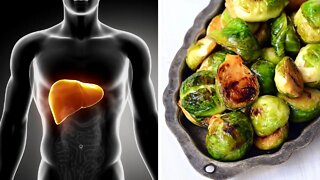 3:56
3:56
Natural Cures
1 year ago $0.07 earnedEat More of These Foods To Heal & Improve Your Liver's Health
195 -
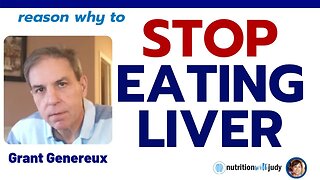 1:09:58
1:09:58
Nutrition with Judy
3 years agoWhy Eating Liver May Not Be Good: Unspoken Truths about Vitamin A
31 -
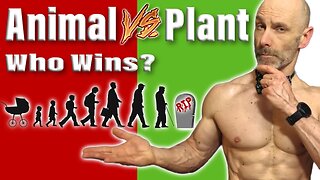 3:53
3:53
Fit and 50
2 years ago $0.01 earnedAnimal VS Plant Protein For A Longer Life (Healthy & Vibrant)
1241 -
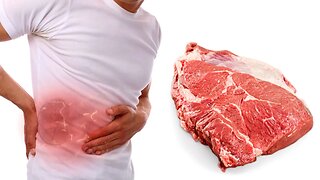 3:39
3:39
Natural Cures
1 year ago $0.02 earnedThese 5 Foods May Be Ruining Your Liver
151 -
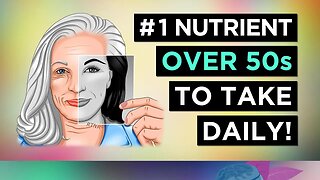 8:44
8:44
Ryan Taylor Natural Remedies
9 months ago $0.01 earned#1 Nutrient For OVER 50's
108 -
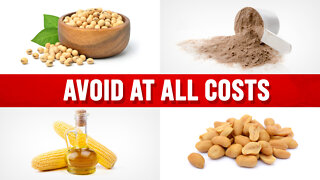 12:13
12:13
Dr. Eric Berg
2 years ago7 Foods That RUIN Your Liver
387 -
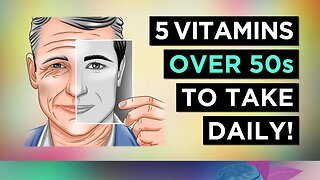 11:45
11:45
Ryan Taylor Natural Remedies
10 months ago $0.03 earnedTop 5 VITAMINS For OVER 50's
70 -
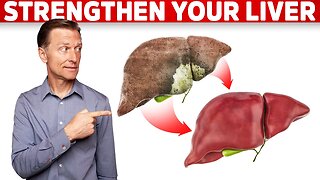 25:48
25:48
Dr. Eric Berg
1 year agoThe BEST Foods to Strengthen Your Liver
542 -
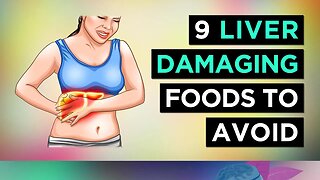 12:05
12:05
Ryan Taylor Natural Remedies
10 months ago9 Foods That DAMAGE Your LIVER
51 -
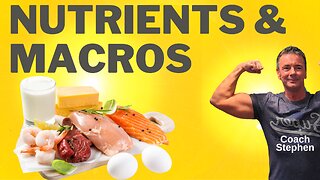 8:05
8:05
the UK carnivore
8 months agoWhy We Don't Bother with Carbohydrates
282